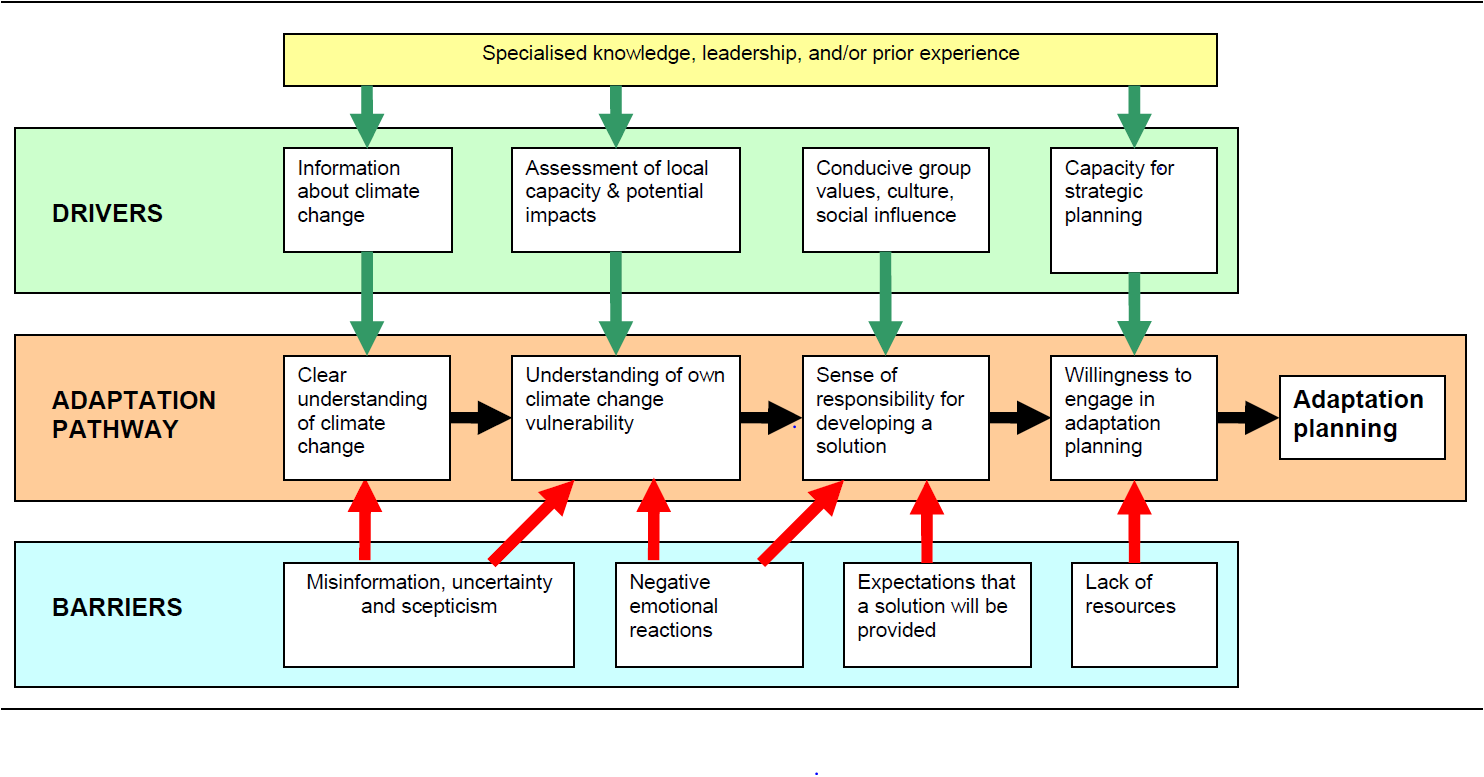C2REST Theory of Change: Stakeholder Engagement for Climate Adaptation
We are adopting a preliminary framework for stakeholder engagement in climate change adaptation based on Gardner et al. (2009). This model highlights the critical drivers, barriers, and the adaptation pathway essential for meaningful engagement and action.
Drivers of Engagement
We will explore participants' knowledge about climate change, its impacts, and their vulnerability. Questions will also address cultural beliefs, strategic planning capacity, and the role individuals can play in climate adaptation.
Barriers to Action
Key barriers, such as misinformation, uncertainty, scepticism, and emotional reactions like fear or hopelessness, will be identified and discussed. We will also explore perceptions about responsibility, focusing on how participants view the roles of government versus individuals in addressing climate change.
Adaptation Pathway
Participants will engage in activities that help reflect on their vulnerability, take responsibility for solutions, and assess their willingness to engage in adaptation planning. The goal is to build confidence and readiness for long-term climate adaptation strategies.

Reference: Gardner J, Dowd AM, Mason C, Ashworth P. A framework for stakeholder engagement on climate adaptation. Climate Adaptation National Research Flagship Working Paper. 2009 Jan;3:1-31 (https://research.csiro.au/climate/wp-content/uploads/sites/54/2016/03/3_CAF_WorkingPaper03_pdf-Standard.pdf)
